Swimming Pools and Eye Health – 7 Things
-
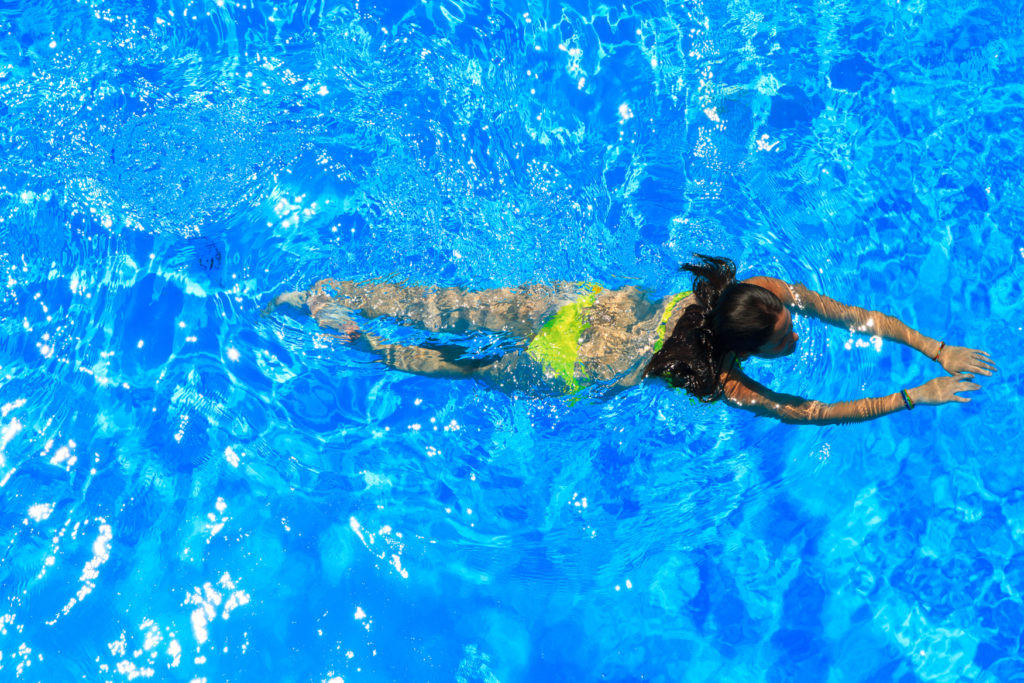
What better way to escape the seemingly endless heat of summer than to splash around in the crisp, cool water of a swimming pool? Whether it’s in the comfort of your own backyard, at a generous friend’s house or at a nearby community pool, swimming is a great way to beat the heat. But it’s not all fun and games.
When it comes to swimming pool rules, the only ones you’ve probably heard before are “no running,” “be careful when diving” and “wait 30 minutes after eating” (the last of which has been largely debunked). But this is Better Vision Guide, and we’re here to open your eyes to a whole new set of swimming pool “do’s” and “don’ts.”
Here are seven eye-health-related things to keep in mind when it comes to swimming pools:
-
1. Chlorine & Other Chemicals
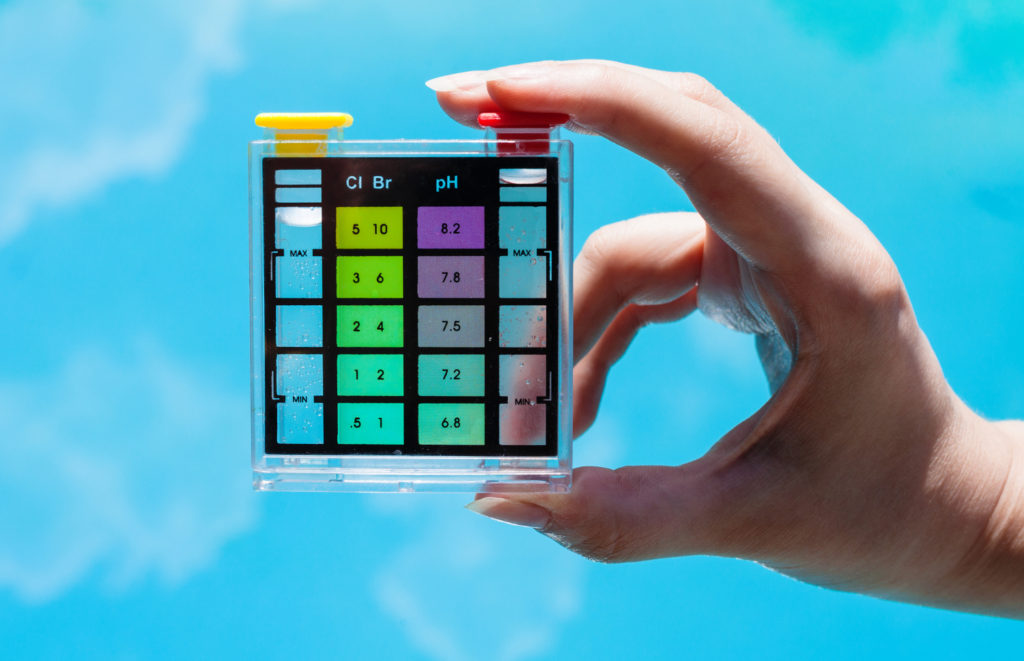
Chlorine and saline play an essential role in disinfecting swimming pools. But these beneficial chemicals can also wreak havoc on your eyes. Failure to achieve the right balance can lead to eye irritation in the form of stinging, burning, dryness and redness. You’ve no doubt experienced “swimmer’s eye” at one time or another after swimming.
The optimal pH balance for a swimming pool is approximately 7.4 which roughly matches that of the eyes. If you own the pool, test the water frequently to measure the pH, and adjust the chemical composition accordingly. If you are swimming in someone else’s pool, limit the exposure of your eyes to the water until you can determine if the chemicals are out of balance. Immediate eye irritation is a good sign that pH needs to be adjusted.
If you’re looking into building a pool, consider a salt water option. Although salt water pools are more expensive and still require chlorine, the concentrations are far less.
-
2. Protect the Tear Film
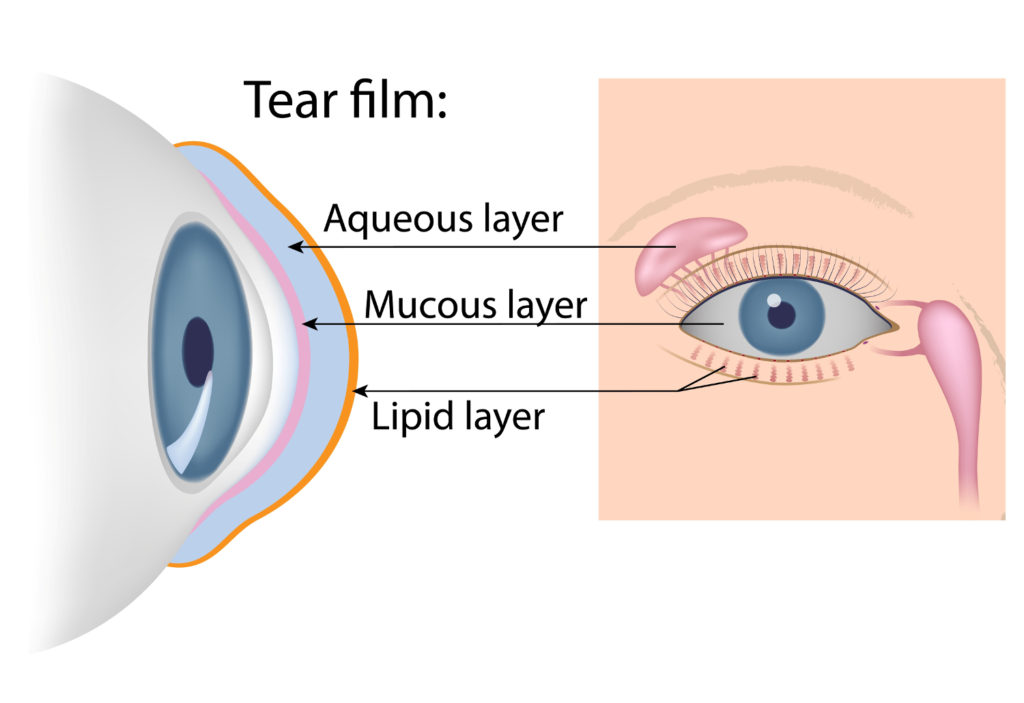
The tear film is a protective barrier made up of oil, water and mucous that covers the front of the cornea. One of the main reasons pool chemicals irritate the eyes is because they wash away the healthy tear film, leaving the cornea unprotected. If this occurs frequently — say, for example, over a summer spent swimming constantly — it can lead to dry eye syndrome, a condition in which the tear film is not functioning properly.
Applying lubricating eye drops before and after swimming can help support the tear film.
-
3. Wear Goggles
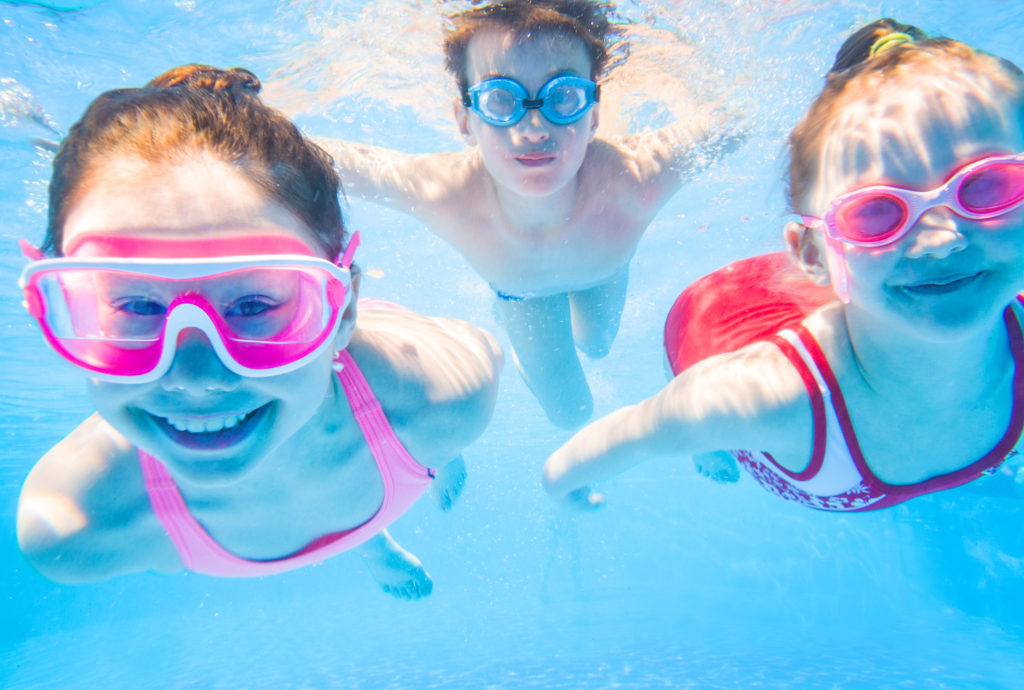
You might think that goggles are just for competitive swimmers, but the reality is they’re the best way to protect your tear film when swimming. Especially if you’re planning on spending long days splashing around in the pool.
There are a variety of goggles to choose from across all price ranges, both prescription and non-prescription. They might take some getting used to, but they offer the ultimate eye protection against all forms of irritation.
After swimming, be sure to clean your goggles to get rid of any bacteria that may have built up inside the lenses. Add a few tablespoons of white vinegar to a bowl of water and soak your goggles for an hour or two, then rinse with tap water and hang to dry.
-
4. Contact Lens Wearers Beware
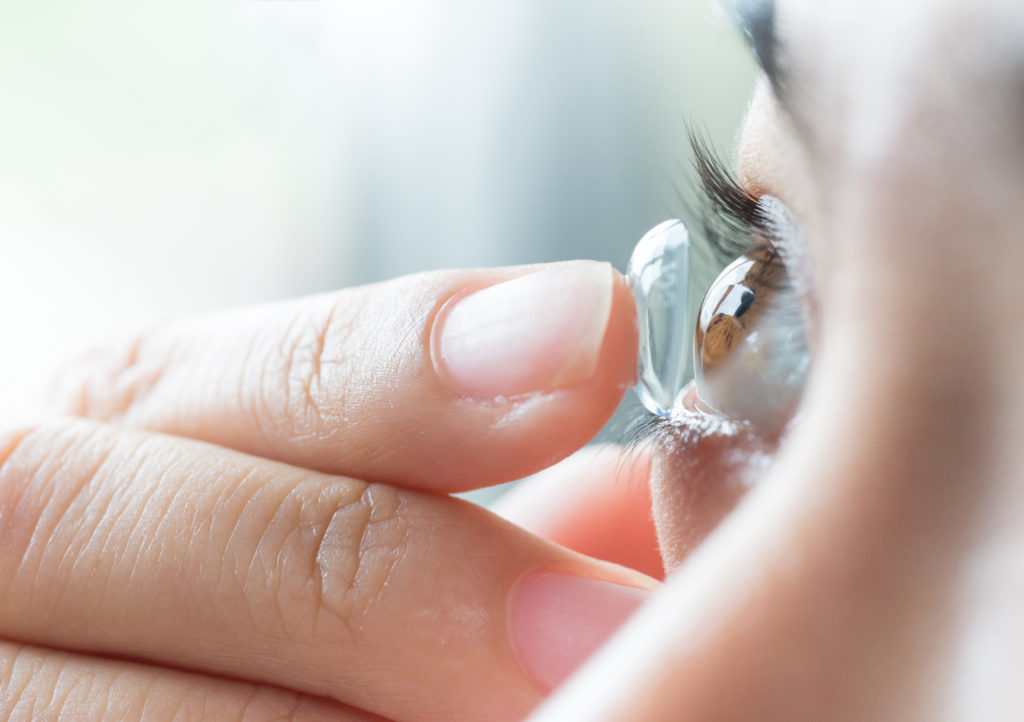
Wearing contact lenses while swimming can be a recipe for disaster. The lenses serve as a sponge for all sorts of bacteria. The simple act of jumping in and out of the pool for a couple of minutes with your eyes open can be enough time for the lenses to attract harmful bacteria.
If you have a hard time seeing without your lenses, consider using prescription goggles instead. In addition to giving your eyes an extra layer of protection, the goggles reduce the risk of serious eye infections that result from swimming while wearing contacts.
If you forget to take your contacts out before swimming, you should remove the lenses as soon as possible and rinse your eyes and lenses thoroughly.
-
5. Have You Had Eye Surgery Lately?

If you’ve recently had eye surgery such as LASIK, your doctor will give you a list of “do’s” and “don’ts” to follow during your recovery. One of the things to avoid immediately after surgery is swimming, because of the potential for the chemicals and bacteria to get inside the eye through the surgical incision (or in the case of LASIK, the flap) and hamper your recovery. You might think that simply wearing goggles would afford protection, but in reality they can actually impede recovery. Goggles change the pressure in and around your eye, which can slow your healing process.
Check with your eye doctor about when you can return to normal activities like swimming after surgery.
-
6. Hydration, Hydration, Hydration
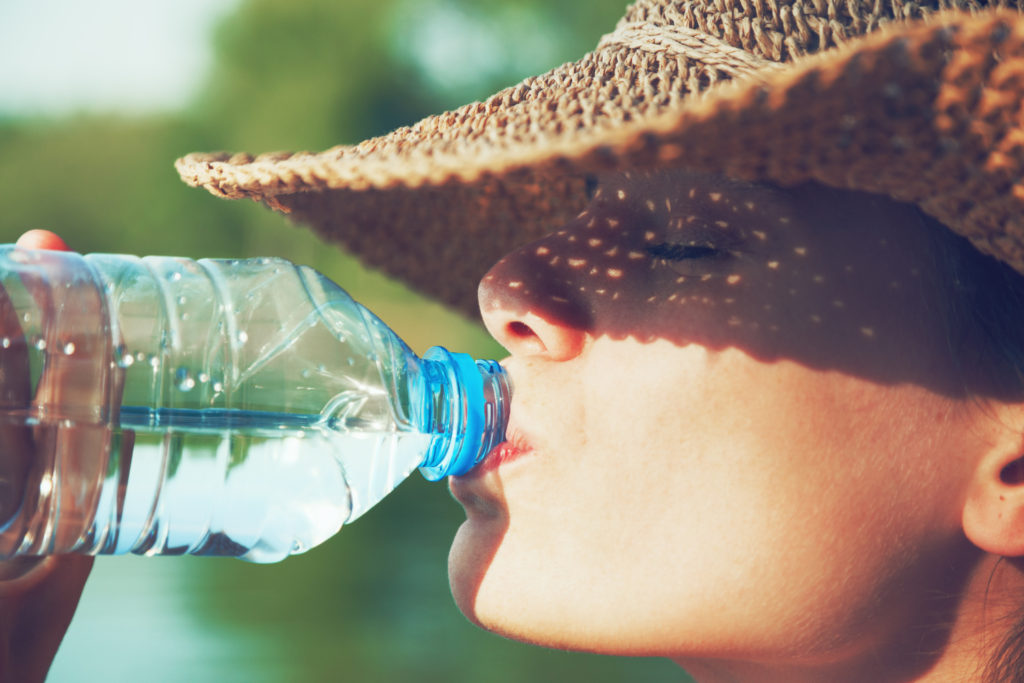
Hydration is essential for all facets of health, including eye health. Dehydration can inhibit tear production, disrupting the protective tear film and, in turn, making you more susceptible to damage from chemicals and bacteria when swimming. On warm summer days, it’s easy to get dehydrated, so be sure to drink plenty of water to keep tear production up.
-
7. Don’t Forget to Wash Your Eyes
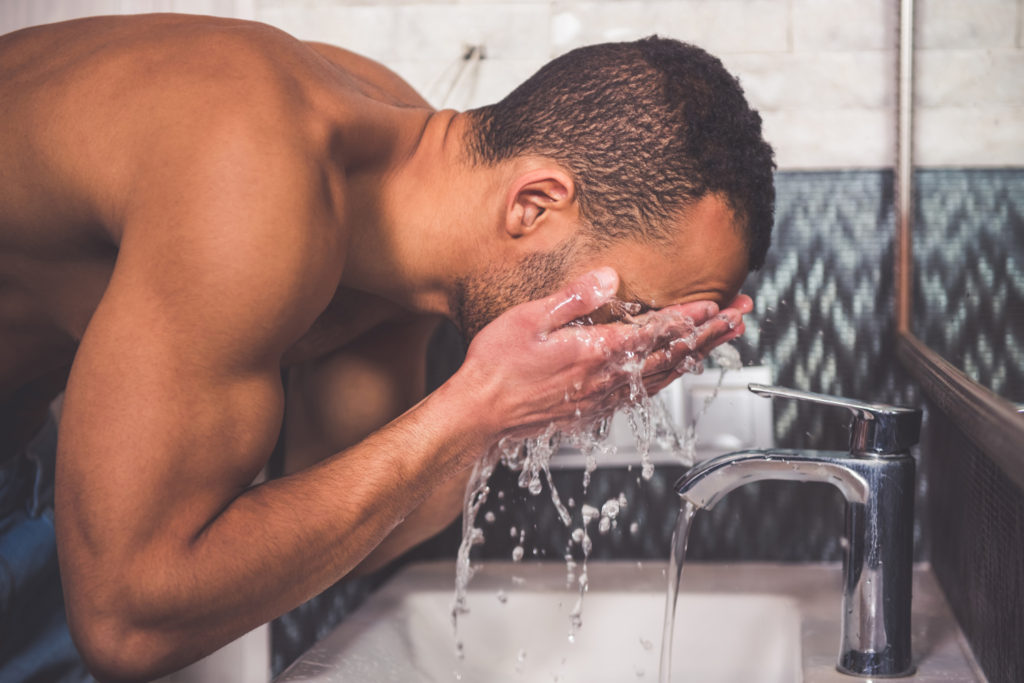
One of the best things you can do to protect your eyes is wash them immediately after swimming. This helps soothe the eyes from any irritation, in addition to washing away any chemical residue on the eyelids/lashes. Be sure to clean your hands thoroughly beforehand.
After your eyes have been rinsed, lubricating drops can help rebuild the tear film and provide additional protection and soothing recovery.






